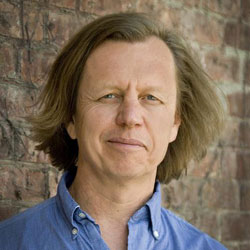It’s that time of year, when millions of students “graduate” to a new stage of their education or life. During the ceremonies they will hear representatives of their classes share about what they have learned and then listen to graduation speakers talk about what they will need as they move into the future. Here’s the graduation speech we’d like to give — offering “wisdom to go” in the form of spiritual practices for everyday life. (This is Part I; we’ll have more wisdom to go next week.)

Greetings Graduates!
Since ancient times, men and women have been on a personal quest for wisdom. It’s hard to put into words exactly what we are seeking, but it has to do with discovering the meaning and purpose of life in general and specifically what’s happening in and around us.
This month you and other college graduates will start the transition from the academic world where you have learned from books and the great minds of history to the larger world where consciousness is informed by the popular culture of television, movies, music, and posts on social media like Facebook and Twitter. In this speeded-up world, wisdom is delivered in sound bites and YouTube videos rather than in the lectures and discussions of college classes and seminars.
Despite the differences in format, all this wisdom sharing is part of a conversation that has been going on for thousands of years in the sayings and writings of spiritual sages, philosophers, scholars, novelists, poets, scientists, and theologians.
The moment you step out the gates of your campus, you’ll encounter strange and unfamiliar sources of wisdom. To help you navigate the options, we have some recommendations. Our tools for self-growth are short (an important quality in our distracted times), deep (they can take you on an inward journey), and playful (they’ll draw out your creative soul). So here’s some wisdom to go for this age of fast food, fast cars, and fast movies.
Proverbs
The first stop on your quest for fresh sources of meaning are proverbs — people’s wisdom passed from generation to generation. Robert Peter Tristram Coffin writes of them:
“Proverbs are not merely decorations on life, they have life itself in them. They are the bedrock substance of living built up by many people and many years.”
In Elizabethan England, schoolboys memorized hundreds of proverbs and maxims. According to Abraham Ibn Ezra, “wisdom is to the soul as food is to the body.” You will want to integrate these vitamin supplements into your education diet. Here are some examples.
• There is a Arab proverb that goes: “If you have much, give of your wealth; if you have little, give of your heart.” This wisdom pulls down the walls between the rich and the poor and shows that each of us in our own way can practice generosity.
• The Chinese have a proverb: “If you keep a green bough in your heart surely the singing bird will come.” Joy and happiness do not just come about magically. We have to use intention and in all our deeds demonstrate a positive attitude.
• “God did not create hurry” is a brief but profound Finnish proverb. We live in times when “hurry sickness” is a national outgrowth of our worship of speed and productivity. Slowing down is a spiritual antidote to our habit of rushing through things and often ignoring what is right in front of us.
Pith Instructions
Another source of wisdom, not very well known in the West, are the pith instructions of Tibetan Buddhist sages. Buddhism is a very practical tradition that reveals how we can navigate through the emotions and encounters of our ordinary experiences. As Lama Surya Das explains in his book Natural Radiance, pith instructions are teachings which are not only helpful in meditation but also as tips for daily life. They address fundamental wisdom questions such as the nature of God, the soul, birth and death, and the purpose of life. Here are a few examples of Lama Surya Das’s pith instructions:
• “Let go and let be” is a spur to the practice of not clinging or getting too attached to people, ideas, or stories about ourselves.
• “We are all Buddhas; we only have to recognize that fact.” We spend far too much time and energy trying to prove ourselves to others when we already possess the miracle of Buddha’s natural mind.
• “Not too tight or too loose” expresses in a nutshell the Buddhist emphasis on living a balanced life that eschews one extreme or another.











